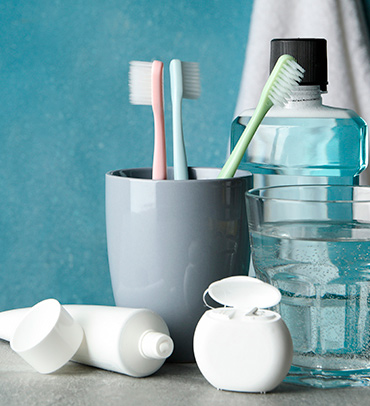Tooth erosion is the thinning of the outer protective layer of your teeth. Once it's gone you can't replace it, but you can take steps to stop it before it gets worse. The best way to prevent enamel erosion is to practice good oral hygiene and visit your dentist regularly.
Tooth erosion is the wearing down of your tooth enamel (the outer protective layer of your teeth) due to chemical or mechanical forces. When your tooth enamel becomes thinner, your teeth weaken and become more vulnerable to stains, sensitivity, and cavities. Other names for tooth erosion include enamel erosion and dental erosion.
If left untreated, tooth erosion continues to wear away the layers underneath your teeth. The good news is that this process happens gradually. If you've already lost some enamel, there are ways to prevent further deterioration.
Anyone can experience tooth erosion. It's prevalent across all age groups, affecting approximately 50% of baby teeth and up to 45% of permanent teeth.
Symptoms vary from person to person. Early signs of enamel erosion include:
As enamel erosion progresses (wearing away more layers of your teeth), you may begin to feel pain. As it approaches the dental pulp (the part containing nerves), you're likely to experience increased discomfort.
Several factors can contribute to tooth erosion:
Tooth erosion typically occurs slowly over time. However, if left untreated, it can lead to various complications, including:
A dentist can diagnose tooth erosion during a routine dental examination. They'll check for signs of wear and tear, tissue changes, hollows, and other symptoms. They may also take dental X-rays to assess the extent of damage.
Treatment for tooth erosion depends on the severity of your condition. Topical fluoride is the most common treatment for early-stage enamel erosion. Fluoride helps strengthen your tooth enamel and prevent further erosion. However, it can't reverse tooth erosion once enamel is lost.
If your tooth erosion is more advanced, your dentist may recommend:
Prevention is crucial when it comes to tooth erosion since enamel doesn't grow back once it's gone. Here are some tips to reduce your risk:
Untreated tooth erosion can lead to serious consequences over time, including:
The good news is that tooth erosion doesn't happen overnight. Early intervention can prevent it from worsening.
To maintain optimal oral health, regular dental visits are essential. Some people may need visits every six months, while others, especially those prone to tooth erosion, decay, or gum disease, may need more frequent appointments. Your dentist can recommend a schedule that's right for you.
In addition, if you notice tooth sensitivity or visual signs like erosion, notching, hollows, or changes in color, make an appointment with your dentist promptly. Early treatment can prevent further damage from tooth erosion.
Please note that the information provided above is for informational purposes and should not substitute medical examination or diagnosis. For detailed advice, contact Cafe Diş Dental Clinic and schedule an appointment with our experienced dental professionals.
